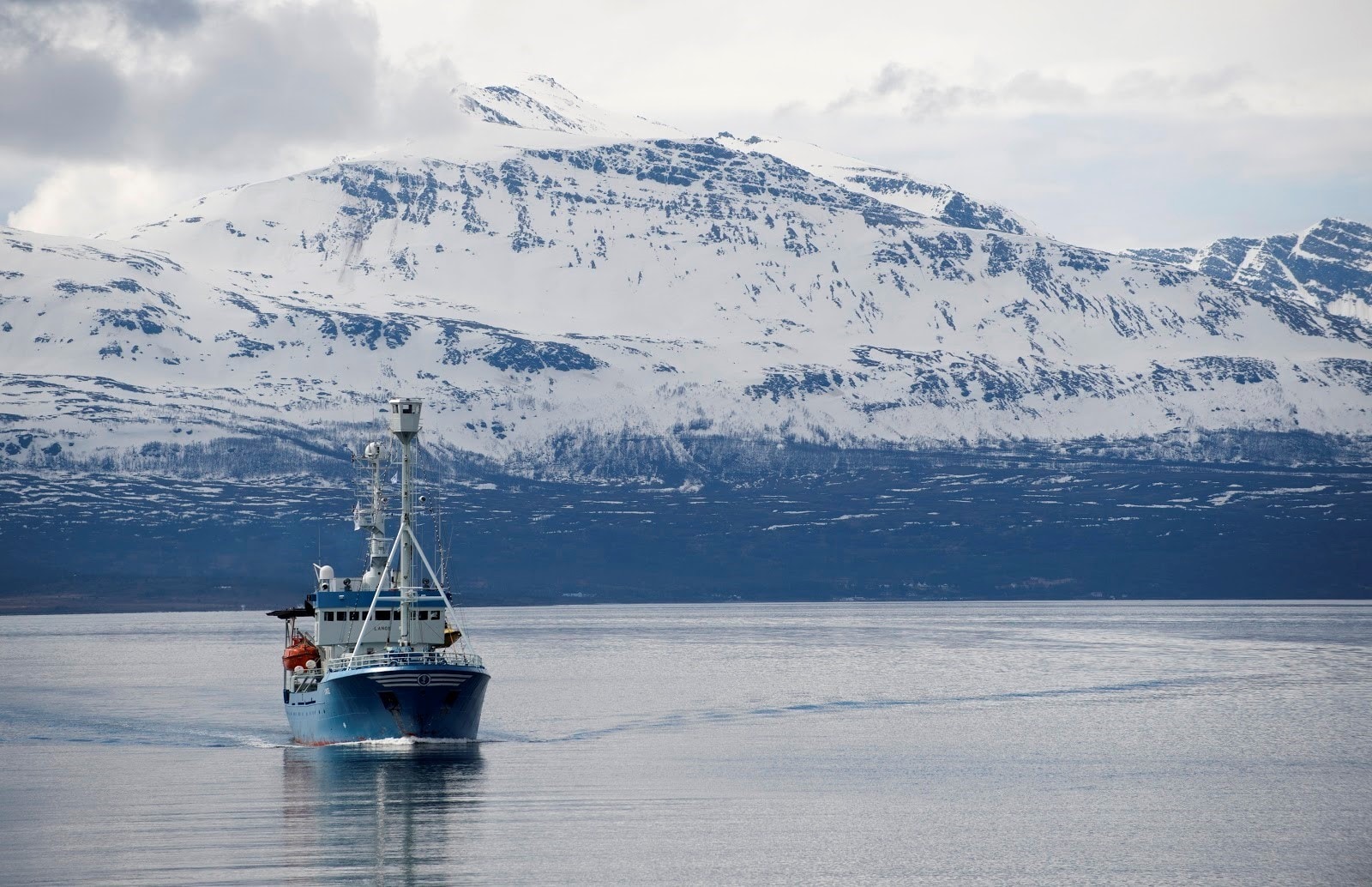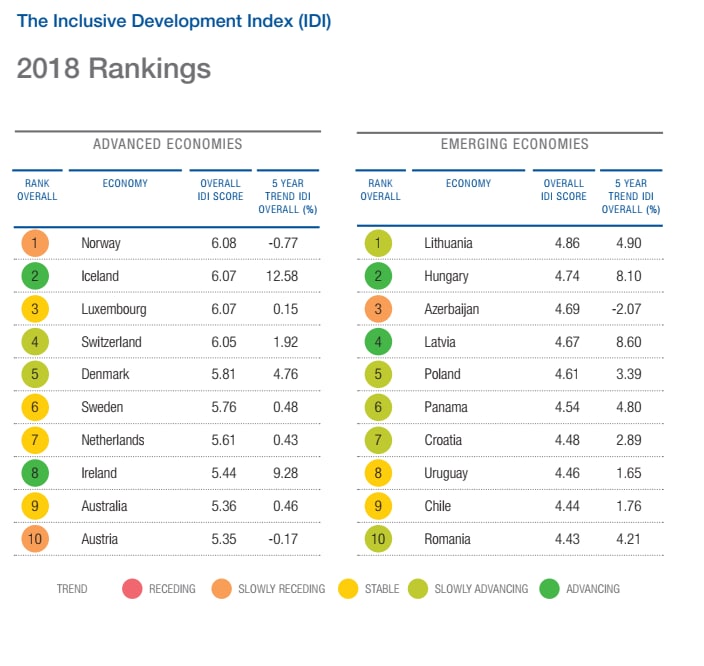These are the world’s most inclusive economies

2018's Inclusive Development Index by the World Economic Forum shows that Norway has the most inclusive economy.
Image: REUTERS/Nikola Solic
Stay up to date:
Economic Progress
Crunch the numbers and Norway’s GDP tells the story of an oil-rich nation that has invested wisely for the future. But Norway’s success goes far beyond traditional economic measures. Measures that are increasingly being called into question.
Firstly, GDP doesn’t cover all the aspects of a nation’s economy that can lead to success or failure. It doesn’t look at living standards, for example, or how “future-proofed” an economy is to unforeseen shocks.
In addition, argues a new report by the World Economic Forum, reliance on GDP is fuelling short-termism and inequality.
The World Economic Forum’s Inclusive Development Index takes a much broader approach to measuring a country’s economic performance and potential. The 2018 Index shows Norway is the world’s most inclusive advanced economy.

Norway on top

The Index measures three performance indicators - known as pillars - of a nation’s economic development. They are:
- Growth and Development
- Inclusion
- Intergenerational equity
Growth and Development
This measure does look at GDP, but also at life expectancy.
Inclusion: Measures for this metric include household income and poverty rates.
Intergenerational equity: This analyses factors such as age demographics (the number of workers versus the very young and very old) as well as how much debt the country owes per capita.
Of the 103 economies covered by the study, Norway comes out on top. It scores 2nd on intergenerational equity, and third on growth and development as well as inclusion.
In fact, small European countries dominate the top ten.
Iceland is a “stand out” economy, and second on the list. The country has done more than most to make its growth processes more inclusive and sustainable, says the report. That said, its inclusion pillar has deteriorated over the last five years. It shares the same score as Luxembourg, in third place.
Denmark and Sweden join the other northern European countries in the top ten, in 5th and 6th place respectively.
Australia, in 9th place, is the only non-European economy in the top 10.
The UK ranks 21 out of a possible 29, and mid-range when compared to the G7. The US ranks two places lower in 23rd place.
Overall, however, the findings are worrying.
While the GDP of advanced economies grew by 5.3% on average between 2012-2016, inclusion grew by only 0.01, and intergenerational equity grew by only 0.66%.
Emerging Economies

Emerging European economies occupy six out of the 10 spots in the emerging economies’ ranking. Lithuania is the most inclusive, followed by Hungary in 2nd place. Latvia is in 4th place, Poland in 5th place, Croatia in 7th place and Romania in 10th place.
They all perform well on growth and development, having benefited from EU membership, explains the report. They also perform well on inclusion, with rising living standards and declining wealth inequality.
Latin America also performs well, with three countries featured in the top 10. Panama in 6th place, Uruguay in 8th place and Chile in 9th place.
But the picture for emerging economies as a whole is worrying, says the report. Upper middle income economies grew by 7% in 2012-2016 but inclusion in these nations grew by only 4.6%. Worryingly, inter-generational equity fell by 2.1%.
A clearer measure of success
The Inclusive Development Index gives a much clearer measure of the success of a nation’s economy, says the report. Growth is strengthened by overall wealth being shared more widely, and generated in a way that is sustainable, and which doesn’t burden future generations with piles of debt.
Advanced and emerging economies alike still have far to go.
“Worryingly, the Inclusive Development Index shows that economies are prioritizing policies that support short-term growth over inclusion and sustainability, despite concerns about social inequality,” warns the report.
“Relatively strong GDP growth cannot in and of itself be relied on to generate inclusive socioeconomic progress and broad-based improvement in living standards.
“Leaders must urgently move to a new model of Inclusive Growth and Development that takes into account living standards, environmental sustainability and protection of future generations from further indebtedness,” concludes the report.
Don't miss any update on this topic
Create a free account and access your personalized content collection with our latest publications and analyses.
License and Republishing
World Economic Forum articles may be republished in accordance with the Creative Commons Attribution-NonCommercial-NoDerivatives 4.0 International Public License, and in accordance with our Terms of Use.
The views expressed in this article are those of the author alone and not the World Economic Forum.
Forum Stories newsletter
Bringing you weekly curated insights and analysis on the global issues that matter.
More on Economic GrowthSee all
Khalid Alaamer
April 22, 2025
Jai Shroff
April 22, 2025
Samir Saran and Anirban Sarma
April 17, 2025
Lucia Fry and Naomi Nyamweya
April 17, 2025
Nada AlSaeed
April 16, 2025




